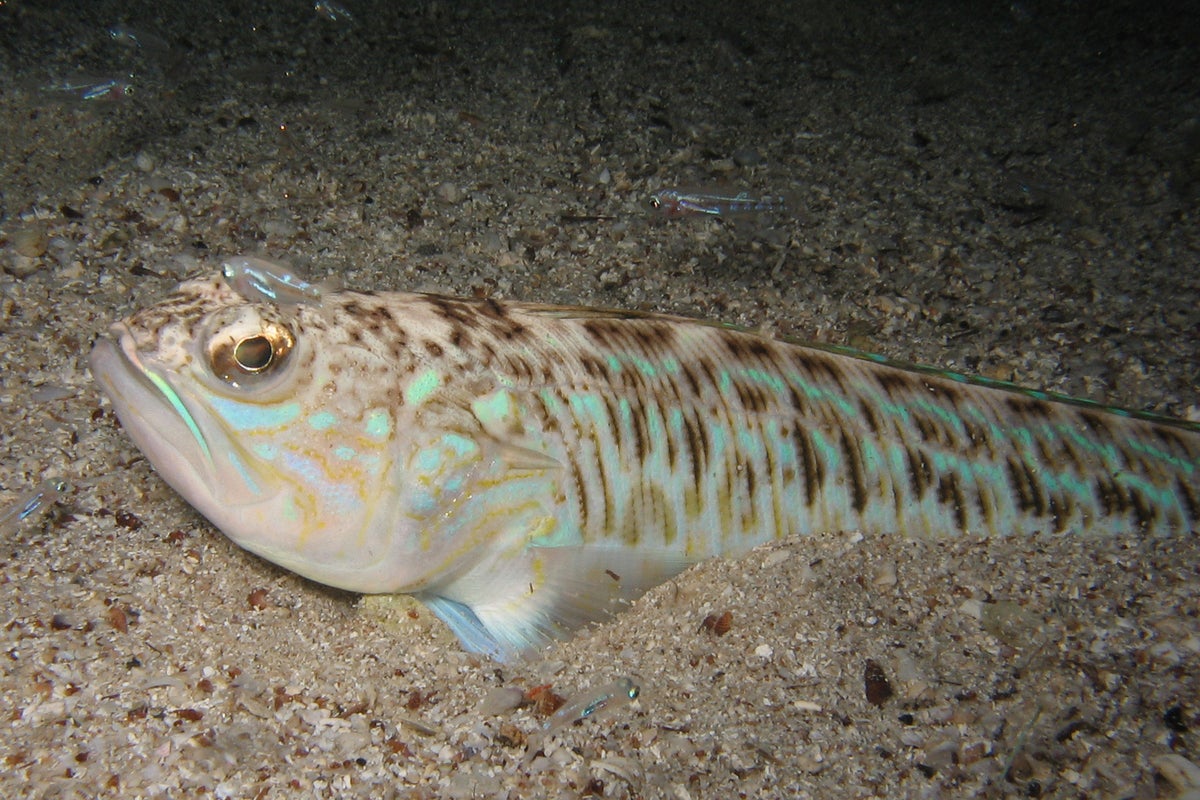
UK beachgoers have been warned to watch where they stand as venomous fish could be lurking in the shallows.
Weevers are one of the only venomous fish in UK waters. Spending much of their lives buried under the sand, they shoot up their black dorsal fin in defence when disturbed, which injects painful venom into unsuspecting victims.
East Riding of Yorkshire Council is in the process of putting up warning signs, urging bathers not to walk barefoot on the sands during weever season, which starts in June when the weather becomes warmer.
A spokesperson said: “We are currently putting up posters on noticeboards and sending out social media messages to warn people about the possible risks of stings from weever fish on our beaches.
“We are urging people to please not walk barefoot on the sands during the weever fish season, just in case.”
Weevers can be found near any coastline around the UK, according to the Wildlife Trust.
The Trust says on its website that to avoid being stung: “You should always wear beach shoes when paddling in sandy waters! Always follow the Seashore Code when rockpooling, be careful to leave everything as you found it - replace any rocks you turn over, put back any crabs or fish and ensure not to scrape anything off its rocky home.”
British Marine Life Study Society said “the pain is usually described as excruciating as the spines embed into the human flesh and discharge their venom”, according to its website.
The pain is at its most intense for the first two hours after contact, when the area can get red and swollen, the society added.
The Wildlife Trust advises people who are stung to place the affected body part in “as hot water as you can bear, as quickly as possible. After 15 minutes or so, the pain should ease.”
NHS advice says victims should pour salt water over the affected area, rather than fresh water, and remove any visible tentacles by pulling them out, using tweezers or the edge of a bank card.
It also said painkillers and antihistamines can reduce the pain and itching if necessary, and warned sting victims to ensure their tetanus injection is up to date.







